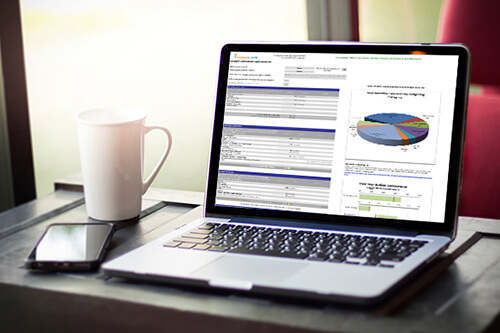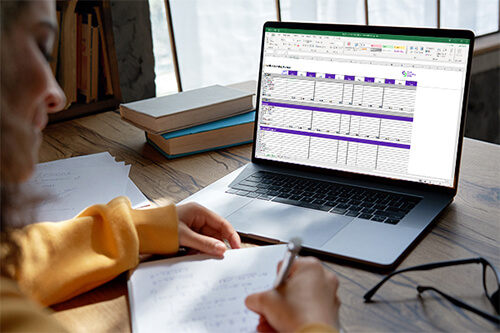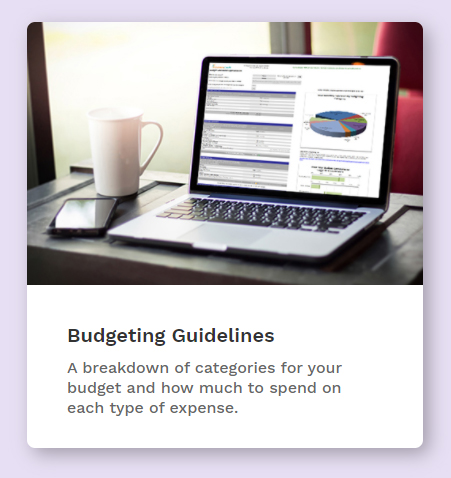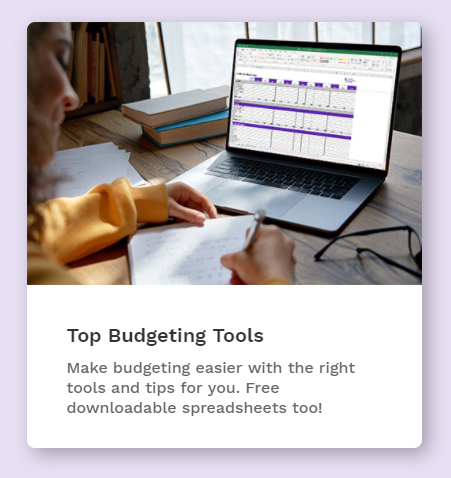Renting for the Long-Term? You’re Not Alone
Tips to Budget as a Long-Term Renter
If you’re renting for the long term, you’re not alone. A recent report found that 33% of Canadians rent their homes. While renting used to be seen as a temporary situation or a step towards owning a home, for many people long-term renting has become the status quo. Renting your home can offer flexibility and freedom, but it also comes with its own set of financial challenges and expenses. To make the most of your money, here are some budgeting tips to keep in mind if you’re renting for the long term.
Should You Rent or Buy a Home?
Calculate Your Total Housing Costs, Not Just Rent
Even if you’ve been renting long-term already, it’s crucial to calculate all of your costs, beyond your monthly rent payments, when setting up your budget. Utilities such as your electricity, water, gas, and internet are not always included in your rent. If you haven’t budgeted for these added costs, you might already be finding yourself short each month. Tenant’s insurance, which covers the cost of your belongings in case of loss or damage, is often required by landlords and needs to be included in your budget as well.
Accounting for all of your expenses will help you build a more accurate budget that reflects your current financial reality.
How to Save Money on Your Household Energy & Electricity Bill
Create a Detailed Monthly Budget
Once you know what all of your expenses are, it’s time to build your budget. While this may not be everyone’s favourite part of managing their money, having a detailed monthly budget helps you plan how to pay for your expenses. A budget doesn’t have to be fancy or complicated, so you can get started with a few steps:
- Account for Your Income: Don’t forget about earnings outside of your regular job such as side gigs, freelance work, Canada child benefit payments, or alimony.
- List Your Expenses: Use the list of housing expenses you put together earlier as your starting point. Then add other fixed expenses like groceries, transportation costs, medical expenses, debt payments, transfers to your savings account, and childcare if you have kids. Finally, add in your variable expenses like clothing, personal care, recreation, or eating out.
- Use the Budgeting System That Suits You Best: Using budgeting apps or spreadsheets can make the process to create a budget easier. But if you prefer a pen and paper or another method, use the one that you’re most likely to use consistently.
- Adjust Your Budget: Almost everyone who starts using a budget must revise it three or four times. If your spending exceeds your income, look for areas to cut back. Keep adjusting your budget until it balances, and you aren’t forced to spend more than you earn to buy what you need. Also adjust your budget every time you face a life change, e.g. a new job with higher or reduced income, a change in family status, going from two incomes to one or when the size of your household increases or decreases.
Look for Ways to Keep Your Rental Budget Reasonable
A recent housing affordability report from RBC found that a Canadian household at the end of 2025 needed to spend over half of their income on housing costs. For most people, that isn’t a sustainable way to live. Depending on where you reside and your current family and financial situation, there are steps you can take that may lower your rental costs.
Guide to Living Expenses – How Much Should You Spend?
- Negotiate Your Rent: This one might not be for everybody but if you’ve been a good tenant, and/or are on good terms with your landlord, consider having a conversation about your rent, especially when you’re getting close to renewing your lease. Some landlords might have a less expensive suite that you can move into, or they might be willing to decrease your rent in exchange for some maintenance or upkeep on the home. Remember, many people are struggling to manage expenses so don’t be afraid to bring it up with your landlord. The worst they can say is “No” and at least you’ll know you tried.
- Consider a New Neighbourhood: This option will depend on your current situation, but the fact is rental prices can vary a great deal, especially if you have the flexibility to move out of a bigger city or central area. Keep in mind, there are still costs to moving that you will want to account for, but it can be a worthwhile consideration if you have a portable job or lifestyle.
- Look for Rent Control or Stabilization: In some cities, rent control laws can help protect you from sudden rent hikes. If you find you’re cutting it close to paying your rent every month, or you’re ‘robbing Peter to pay Paul,’ look into rent controlled or stabilized housing if it’s an option in your city or province. A key sign that you can’t afford your current place is if you’re using credit to get by. Avoid taking a payday loan to pay your rent or expenses. No matter how long you’ve lived somewhere it’s not worth taking on high interest debt to get by.
- Pay Your Rent When You Get Paid: While not a true way to keep your rent reasonable, if your goal is to make it easier to pay your rent, talk to your landlord about paying your rent according to your pay schedule. This can make budgeting easier and helps ensure that you don’t spend your rent money by accident.
Find Other Areas in Your Budget to Cut Costs
If you’re able to cut costs in other areas of your budget, those small changes can add up to big savings over time. It doesn’t have to be extreme, sometimes minor adjustments in a few areas can lead to the savings you need.
- Review your cell phone and internet plan: check if it is still suitable for your needs or if you are paying for services you don’t need. Ask yourself if you could temporarily adjust your usage and make do with a less expensive plan.
- Negotiate with your service provider(s): because many will offer plans or service packages that aren’t advertised to current users. When you don’t ask, you don’t get! If you think you’re overpaying for your services or they’re not what you need anymore, don’t hesitate to call other utility service providers to find a better deal.
- Use public transportation: instead of owning a car. Maybe you live in a walkable neighbourhood, or maybe there are carpool and ride/roll options that could work for you. Not owning a car can save you a lot of spending on gas, insurance, and maintenance. And if you do sometimes need a car, renting one occasionally, taking a taxi, or joining a car co-op could be viable alternatives as well
- Take advantage of free activities: Look for free events in your community or enjoy outdoor activities that don’t cost anything. Even saving the cost of a monthly gym membership and using the free/low-cost fitness options in parks or leisure centres could save a few hundred dollars a year.
Save on Cable Bills, Cell Phones & Bank Fees, Spring Clean Your Finances
Build an Emergency Fund
When you rent, unexpected housing costs can still come your way. While much less than what an owner may face, as a renter, for instance, if you break a window or damage a wall, you will need to pay for the repairs. As a renter, you also don’t have the security of controlling what happens to the home you’re living in. If you suddenly need to move, an emergency savings fund will help mitigate moving costs. Ultimately, saving up an emergency fund will help you avoid going into debt when something unanticipated happens.
You might have heard that you should aim to save up at least three to six months’ worth of living expenses, but if that seems out of reach, start your rainy day fund by putting away whatever your budget allows. Work your way up to the six month mark so that you have a fund to help you cover unexpected costs, like car repairs or medical bills, without derailing your budget or relying on credit.
Need Guidance for Budgeting as a Long-Term Renter? We Can Help!
Budgeting as a long-term renter doesn’t have to be daunting. By understanding your total costs, determining a realistic spending plan, and saving strategically, you can enjoy the freedom and flexibility of a rental situation without financial strain. If you’re wondering how to get started or you just want some guidance around budgeting for renting long-term, reach out to us. Our friendly, accredited, financial counsellors can help you make a plan for a secure financial future suited to your specific financial needs.
Last Updated on January 9, 2026








